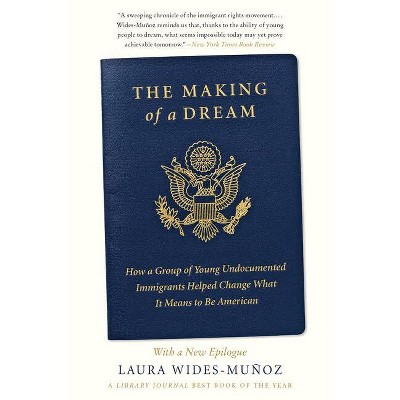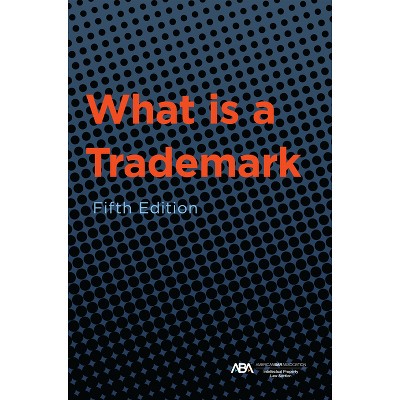Sponsored

On Being American - by Shannon Gilreath & Suzanne Reynolds (Paperback)
In Stock
Sponsored
About this item
Highlights
- On Being American: The Jurisprudence of Ruth Bader Ginsburg tells the story of an advocate and a jurist committed to a broader understanding of what it means to be an American.
- Author(s): Shannon Gilreath & Suzanne Reynolds
- 232 Pages
- Freedom + Security / Law Enforcement, Essays
Description
About the Book
"In her work as an appellate judge, Justice Ginsburg translated this devotion into a jurisprudence focused on "We the People," substantively and procedurally. Substantively, Justice Ginsburg insisted that faithfully employed, the words of the Constitution supported an expansive understanding of who was included in "We the People," despite the framers' narrow understanding of the phrase when it appeared in the preamble to the Constitution. Expressed also as a jurisprudence of equality and opportunity, Justice Ginsburg believed that the phrase promised equal dignity for people despite their gender, gender identity, race, or disability. Procedurally, "We the People" shaped Justice Ginsburg's approach to the process of deciding cases, guiding every step of her judicial process-the way she read the Constitution and statutes, approached voting issues, and analyzed the demands of the separation of powers, for example. While the substantive contours of "We the People" have received the most attention, the full sweep of her jurisprudence appears also in the process she used in analyzing all issues. Justice Ginsburg's jurisprudence of "We the People" became the ordering principle of this book, explaining both the book's title and its topics. Instead of a general survey of Justice Ginsburg's work, the book tells the story of an advocate and a jurist committed to increasing in material ways the bundle of rights we all carry around with us as Americans. As Linda Greenhouse explained in the Foreword, the story begins with Justice Ginsburg's commitment to an America that enables people with diverse experiences to live together in civic harmony. Justice Ginsburg believed that because the American experience involved living in community, the religious expression of some of us had to yield when the expression oppressed others of us in ways endangering that harmony"--Book Synopsis
On Being American: The Jurisprudence of Ruth Bader Ginsburg tells the story of an advocate and a jurist committed to a broader understanding of what it means to be an American. As Linda Greenhouse explains in the Foreword, Justice Ginsburg was committed to an America that enables people with diverse experiences to live together in civic harmony. With civic harmony as its foundation, Justice Ginsburg articulated the anti-stereotyping as the guiding principle for broadening the "who" and the "what" of American citizenship. Knowing that implementing this vision depended on effective legislation, Justice Ginsburg believed also in jealously guarding the franchise and in honoring the people's decision to expand it. Towards the end of her career as she dissented in abortion cases, Justice Ginsburg warned that the failure to adopt the anti-stereotyping principle posed the biggest threat in issues of reproductive choice.
The editors of this book come as close as they can to a posthumous version of what she would have written in Dobbs in the brief by Serena Mayeri, Melissa Murray, and Reva Siegel as Amici Curiae in Dobbs, included as one of the chapters. In two post-Dobbs chapter, the book first explores what the Equal Rights Amendment would have meant to Justice Ginsburg in a post-Dobbs world. In the last chapter, the book imagines how her jurisprudence would have analyzed different kinds of discrimination, not in the abstract but in the realities of the lives affected by it.

















